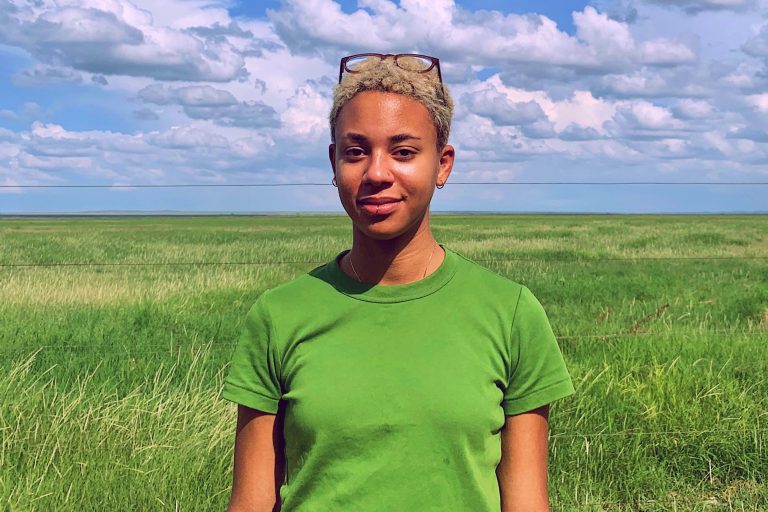By Gabrielle Bonifacio, Communications Assistant

During Black History Month, we encourage everyone to celebrate and explore the countless achievements, contributions, and experiences of Black Canadians throughout history.
Though understanding Black history should not be limited to any single time frame, this month is a good place to start learning about and from notable figures who excelled in their fields and boldly strove for progress, such as Canadians Carrie Best, Lincoln Alexander, and Viola Desmond.
This February, we gathered the perspectives of students who are leading the change at UBC today. One of these leaders is Savannah Sutherland, the co-president of the Black Student Union (BSU). The BSU is a student group which fosters community, creates safe spaces, and advocates for issues relating to the Black community at UBC.
How do you celebrate Black History Month? What does it mean to you?
I only began celebrating Black History Month after the formation of the UBC Black Student Union just over a year ago. Due to the deliberate erasure of the Black community in Canada and especially in BC, for me, Black History Month at UBC is an opportunity for us to take up space, forcing people to recognize our existence, resilience, and potential.
How does your work on campus advocate against and bring awareness to anti-Black racism?
As Co-President of the UBC BSU, my personal goal is to create a space of undeniable love and support for Black students at UBC. However, the BSU’s mission also concerns representation among students, staff, and faculty, and advocacy for issues that pertain to the Black community at UBC. This includes the lack of Black counsellors, the lack of courses dealing with Blackness/African-ness and often subtle anti-Black racism that is exercised on campus.
Do you have any final thoughts on Black History Month that you would like to share with the campus community?
I love seeing the increased participation in Black History Month by departments at UBC. However, the lack of structural change makes much of it seem very performative. Blackness and Black history should not be relegated to the shortest month of the year. If UBC really cares about Black history, resources should be allocated to supporting the African Studies Minor at UBC. This means hiring more Black/African professors, giving tenure to current faculty, and offering enough courses so that existing professors are not forced to squeeze the entire history of the African continent into three months.